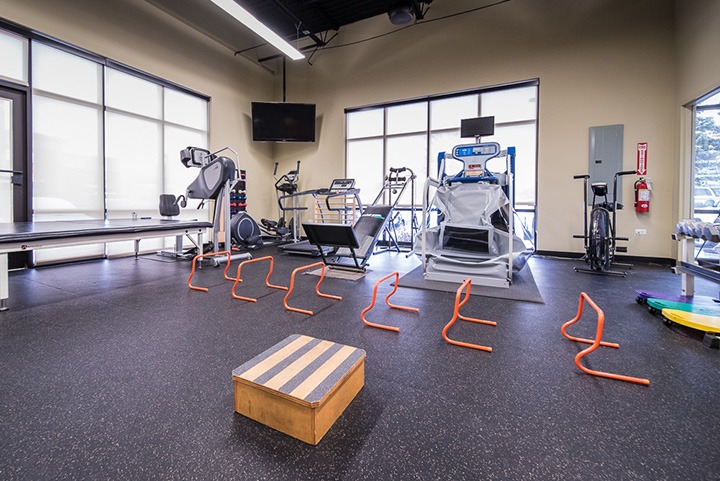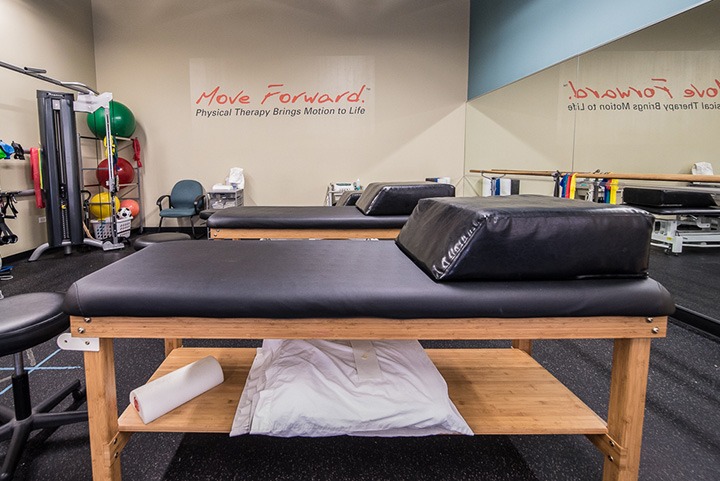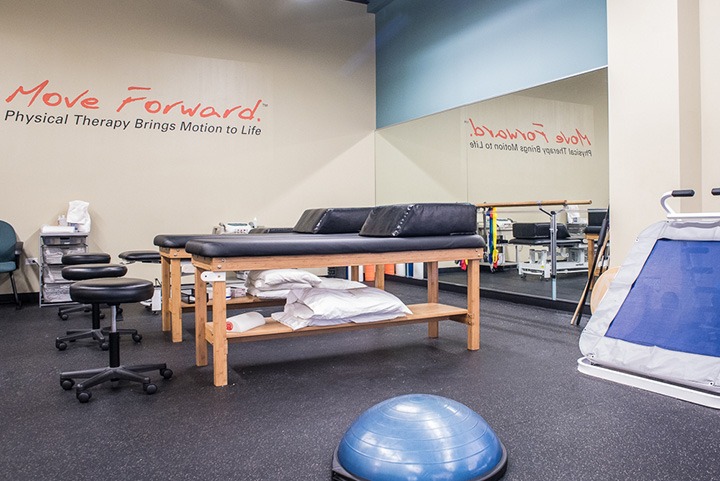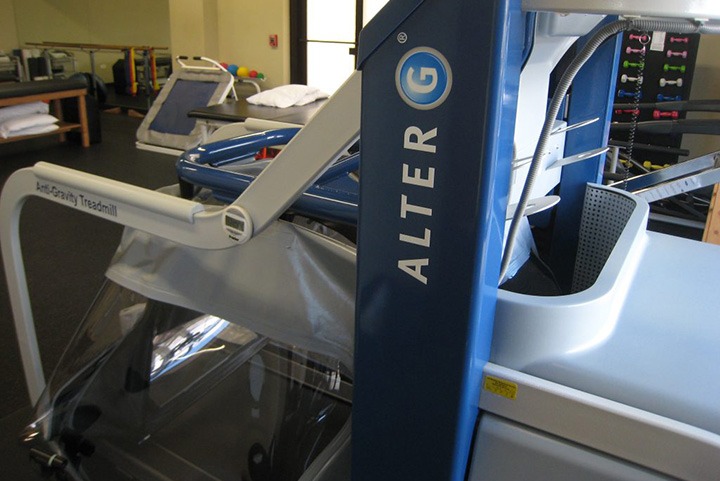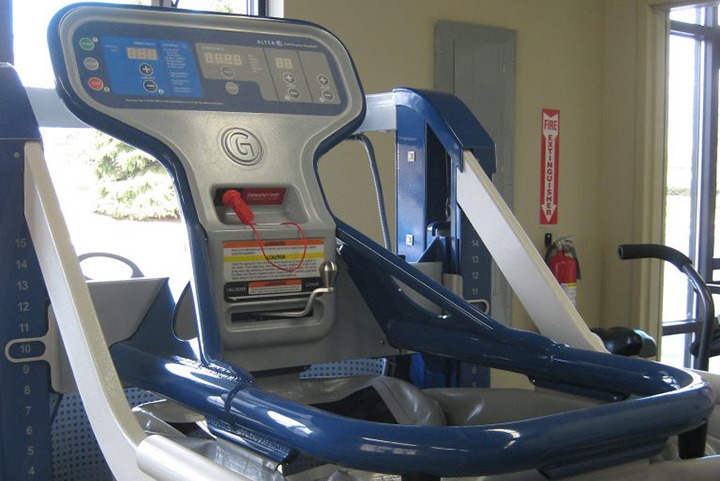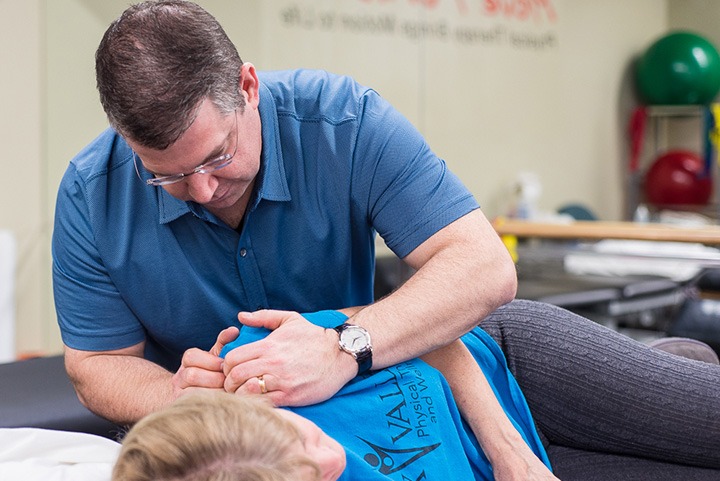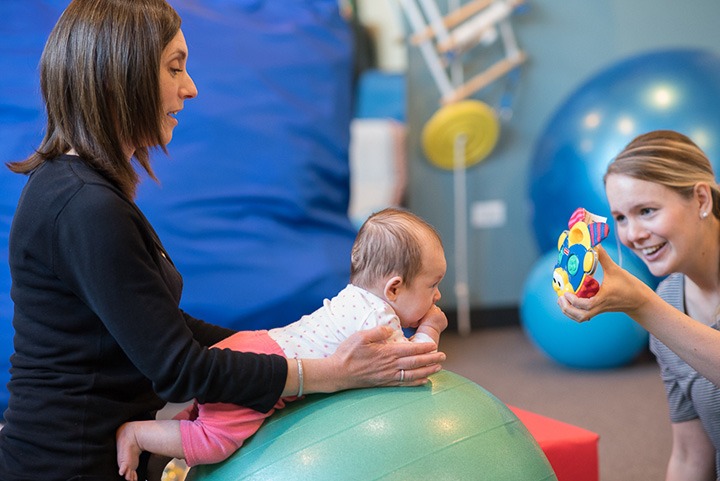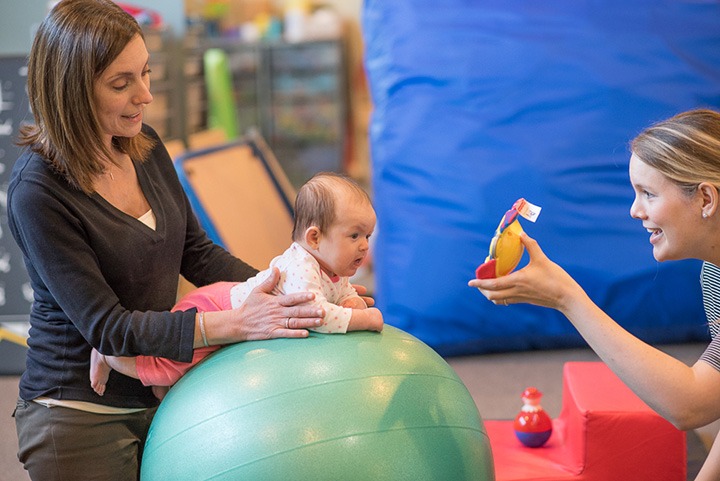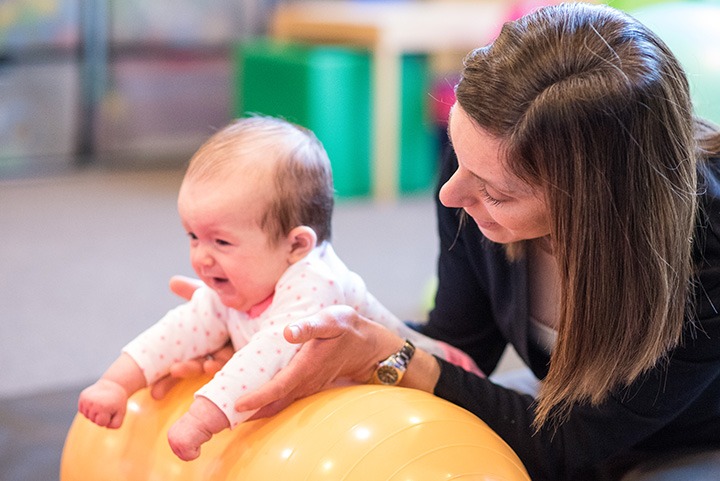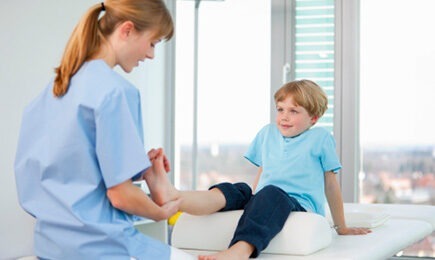Bladder and Bowel Elimination Issues for Children
Potty training brings a multitude of challenges even in the best of circumstances. However, when constipation, “holding”, and accidents happen often, it can be overwhelming for everyone. The good news is there’s help! There is a new branch of physical therapy for kids called pelvic floor rehabilitation therapy. It’s devoted to helping parents and children successfully navigate the complications that can happen during and even after potty training.
When should I be concerned about child bowel and bladder issues?
By the age of six, most children have mastered control of bowel and bladder function. Still, pediatricians confirm that lots of children continue to struggle well beyond this age. with issues surrounding bowel and bladder function. When this struggle begins to affect quality of life for you, your child or your family, it’s time to consider a pediatric pelvic floor evaluation.
What is pelvic floor muscle disfunction, and what causes it?
Children have potty training struggles for various reasons. They may not yet have fully developed sensory systems. They may have emotional barriers to potty training. Oftentimes, though, the issues are physical. In many cases, pelvic floor muscle issues result in elimination problems for kids.
The pelvic floor is comprised of a group of muscles and other tissues that attach to the front, back and sides of the pelvic bone. These muscles form a sling to support the organs in the pelvis. The pelvic floor muscles control bladder and bowel functioning. When these muscles are weak, spasm or do not work properly, bowel and bladder issues can occur. Specifically, pelvic floor muscle dysfunction (also called dysfunctional elimination) happens when the ring of muscles surrounding the opening of the bladder or bowel are weak or don’t function properly. This condition can result in one or more of the following symptoms:
- Frequent urinary tract infections
- Bladder leakage
- Bowel leakage
- Constipation
- Abdominal bloating
- Lower abdominal pain
- Nighttime bedwetting
How can physical therapy help with my child’s bowel and bladder issues?
Physical therapy for kids can help with pelvic floor muscle dysfunction. Our specially trained pediatric physical therapists use biofeedback and other training techniques to encourage muscle activation or relaxation. Physical therapy for child bowel and bladder issues may include:
- Biofeedback for pelvic floor dysfunction
- Use of a bowel and bladder diary
- Dietary and nutritional education
- Postural muscle training and education
- Breathing techniques and exercises
- Manual therapy (belly massages and muscle or visceral relaxation)
How do I get pediatric pelvic floor rehabilitation therapy for my child?
First, a pediatric gastroenterologist or pediatric urologist should perform a few tests. The tests should rule out infections, congenital issues, and other issues not related to pelvic floor muscle dysfunction. If your doctor decides that sensory and muscular issues are involved, he or she may suggest your child get physical therapy for pelvic floor muscle rehabilitation.
What’s the Fox Valley Physical Therapy and Wellness process for assessing pelvic floor muscle disfunction?
When you trust our specially trained therapists with your child’s treatment, we’ll first perform an evaluation.
- We will meet with you and your child in a private room.
- You’ll learn more about how the bowel and bladder work.
- You’ll complete a written questionnaire about your child’s bowel and bladder habits and diet.
- We will talk through your answers to gain a better understanding of your personal needs and goals.
- We’ll assess your child’s posture and evaluate pelvic floor muscle function using biofeedback. The biofeedback process involves placing sensors on the child’s pelvic floor muscles. We connect those sensors to a computer. The computer screen displays child-friendly graphics that help your child understand and learn how to use pelvic floor muscles. No part of evaluation or treatment process is painful for your child. Visit our Biofeedback for Pelvic Floor Dysfunction page to learn more.
Once they have all this information, our pediatric physical therapists can help you and your child understand the issues and our personalized plan for treatment.
How successful is pediatric pelvic floor rehabilitation?
At Fox Valley Physical Therapy and Wellness, we believe in a team approach to resolving child bowel and bladder issues. The success of your child’s treatment depends on collaboration between your child’s doctors, therapists, you and your child. Our compassionate and positive approach to bowel and bladder dysfunction can result in improved confidence, self-esteem, and independence for your child.
- Bladder diary
- Dietary/nutritional education
- Postural muscle training and education
- Breathing techniques and exercises
- Manual therapy (belly massages muscle or visceral relaxation)
The success of treatment depends on the collaboration of a team of doctors, therapists, the parents, and child. Fox Valley Physical Therapy and Wellness, LLC, currently offers pediatric pelvic floor muscle training. A compassionate and positive approach to bowel and bladder dysfunction can result in improved confidence, self-esteem, and independence for your child.
Please contact our office at 630-549-0511 if you have any questions or if you would like to schedule an appointment.
Patient Testimonials
Our Services
Physical Therapy
Our team of therapists provides clinical expertise to thoroughly evaluate and diagnose the problem behind the symptoms.
Orthopedics
Our therapists offer their clinical expertise to thoroughly evaluate and diagnose the problem behind the symptoms.
Pediatrics
We offer pediatric evaluations and physical therapy treatment for children, birth through 21 years.



